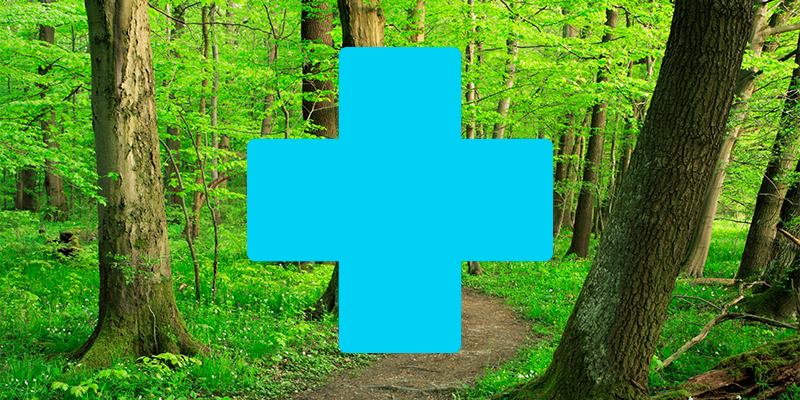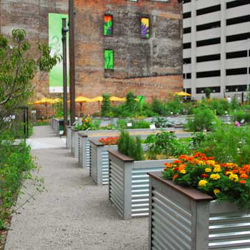Professional Practice
Adult: Obesity

According to the Centers for Disease Control and Prevention, more than a third of American adults are obese. Results from a 2011 survey by state show that obesity rates range from 20.7 percent in Colorado to 34.9 percent in Mississippi; no states had less than 20 percent obesity rates. In 2008, health care costs associated with obesity were approximately $147 billion, or $1,429 more than for an individual of normal weight.
How Nature Helps
Fighting obesity is part exercise and part healthy eating, but getting outside encourages us to move. Harvard Medical School calculates that walking outside at a moderate pace burns 149 calories in a half hour; a combo of walking and jogging (where you jog for more than 10 minutes of the half hour) burns 223 calories; and biking at a moderate speed for a half hour burns 372 calories.
As we walk, bike, and exercise in nature, we are inclined to do more of it. Where you might spend a half-hour walking on a treadmill, walking through a park for a half-hour will make you feel happier, which in turn will make you more likely to walk again tomorrow. Spending time in nature creates a healthy cycle of mental and physical well-being.
Research
"Contributions of Public Parks to Physical Health," American Journal of Public Health, 2007
“Relationship between Urban Sprawl and Physical Activity, Obesity, and Morbidity,”
American Journal of Health Promotion, 2003
“The Built Environment and Obesity,” Epidemiologic Reviews, 2007
 ASLA 2012 Professional General Design Honor Award, LaFayette Greens, Detroit, Michigan, Kenneth Weikal Landscape Architecture / Image credit: Beth Hagenbugh BLA
ASLA 2012 Professional General Design Honor Award, LaFayette Greens, Detroit, Michigan, Kenneth Weikal Landscape Architecture / Image credit: Beth Hagenbugh BLAResources
"Parks are Part of Our Healthcare System," The Dirt blog
Active Living, ASLA
How Cities Use Parks to Improve Public Health, American Planning Association
Health Benefits of Hiking and Trails, American Hiking Society
Organizations
Community Gardening Association
American Trails
The Trust for Public Land
Role of the Landscape Architect
Landscape architects recognize the importance of healthy, local food systems and design gardens, like Lafayette Greens in Detroit, that provide both fresh fruits and vegetables and places to work outside.
Large scale urban parks like Rock Creek Parkway in Washington, D.C. allow people places to exercise in beautiful outdoor settings.
Small changes like walking more also combats obesity. Landscape architects design walkable communities that allow people to get out of their car and walk.
Case Studies
Lafayette Greens, Detroit, Michigan, Kenneth Weikal Landscape Architecture
A Civic Vision and Action Plan for the Central Delaware River, Philadelphia, WRT.
Rock Creek Parkway, Washington, D.C., Frederick Law Olmsted, Jr.
<< Hospital Recovery
Post-Traumatic Stress Disorder (PTSD) >>